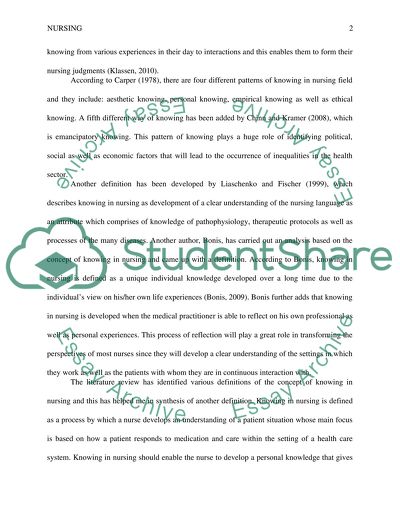Cite this document
(“Knowing in Nursing: Concept Analysis Term Paper”, n.d.)
Knowing in Nursing: Concept Analysis Term Paper. Retrieved from https://studentshare.org/nursing/1452010-understanding-knowing-in-nursing-concept-analysis
Knowing in Nursing: Concept Analysis Term Paper. Retrieved from https://studentshare.org/nursing/1452010-understanding-knowing-in-nursing-concept-analysis
(Knowing in Nursing: Concept Analysis Term Paper)
Knowing in Nursing: Concept Analysis Term Paper. https://studentshare.org/nursing/1452010-understanding-knowing-in-nursing-concept-analysis.
Knowing in Nursing: Concept Analysis Term Paper. https://studentshare.org/nursing/1452010-understanding-knowing-in-nursing-concept-analysis.
“Knowing in Nursing: Concept Analysis Term Paper”, n.d. https://studentshare.org/nursing/1452010-understanding-knowing-in-nursing-concept-analysis.


